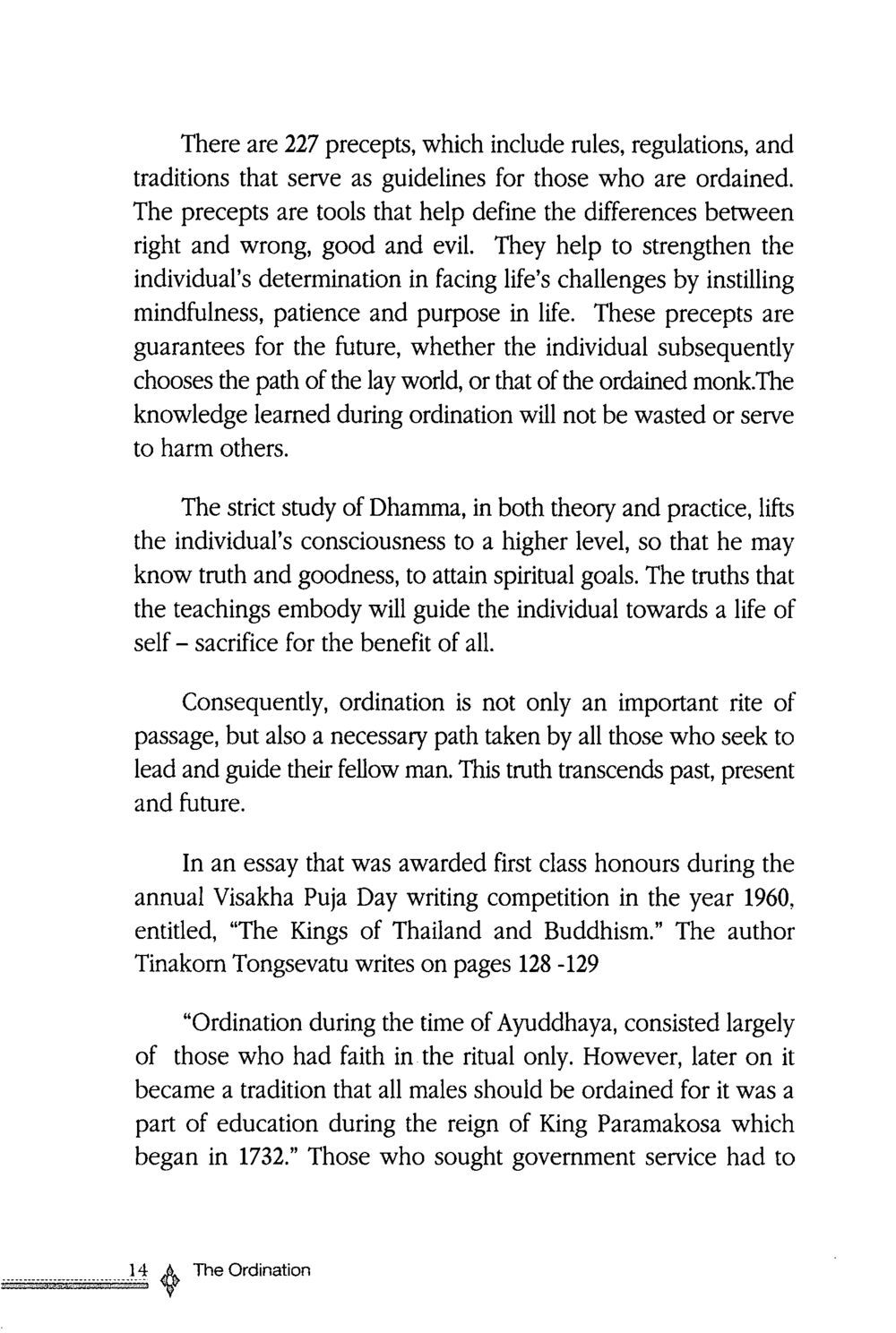Understanding the Role of Precepts in Buddhist Ordination : หน้า 15/105
The ordination : หน้า 15/105 Explore the significance of the 227 precepts guiding the ordained in Buddhism, emphasizing mindfulness, life challenges, and the path towards spiritual enlightenment.
0 ครั้ง

สรุปเนื้อหา
The 227 precepts provide rules and guidelines for the ordained, defining right and wrong to help individuals strengthen their determination amidst life's challenges. They ensure that knowledge gained during ordination benefits both the individual and society, guiding toward self-sacrifice for the greater good. The teachings of Dhamma elevate consciousness, aiding in the pursuit of spiritual goals. Ordination is not only a rite of passage but a significant path for those who wish to lead others. This essay discusses the evolution of ordination practices in Thailand, particularly during the Ayuddhaya period, highlighting its integration into education and societal expectations.
หัวข้อประเด็น
-Role of Precepts in Buddhism
-Significance of Ordination
-Impact of Dhamma on Spiritual Growth
-Historical Context of Thai Ordination
-Traditional Practices in Buddhism









































































































